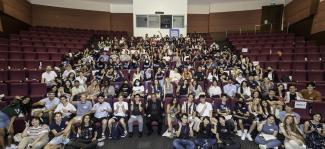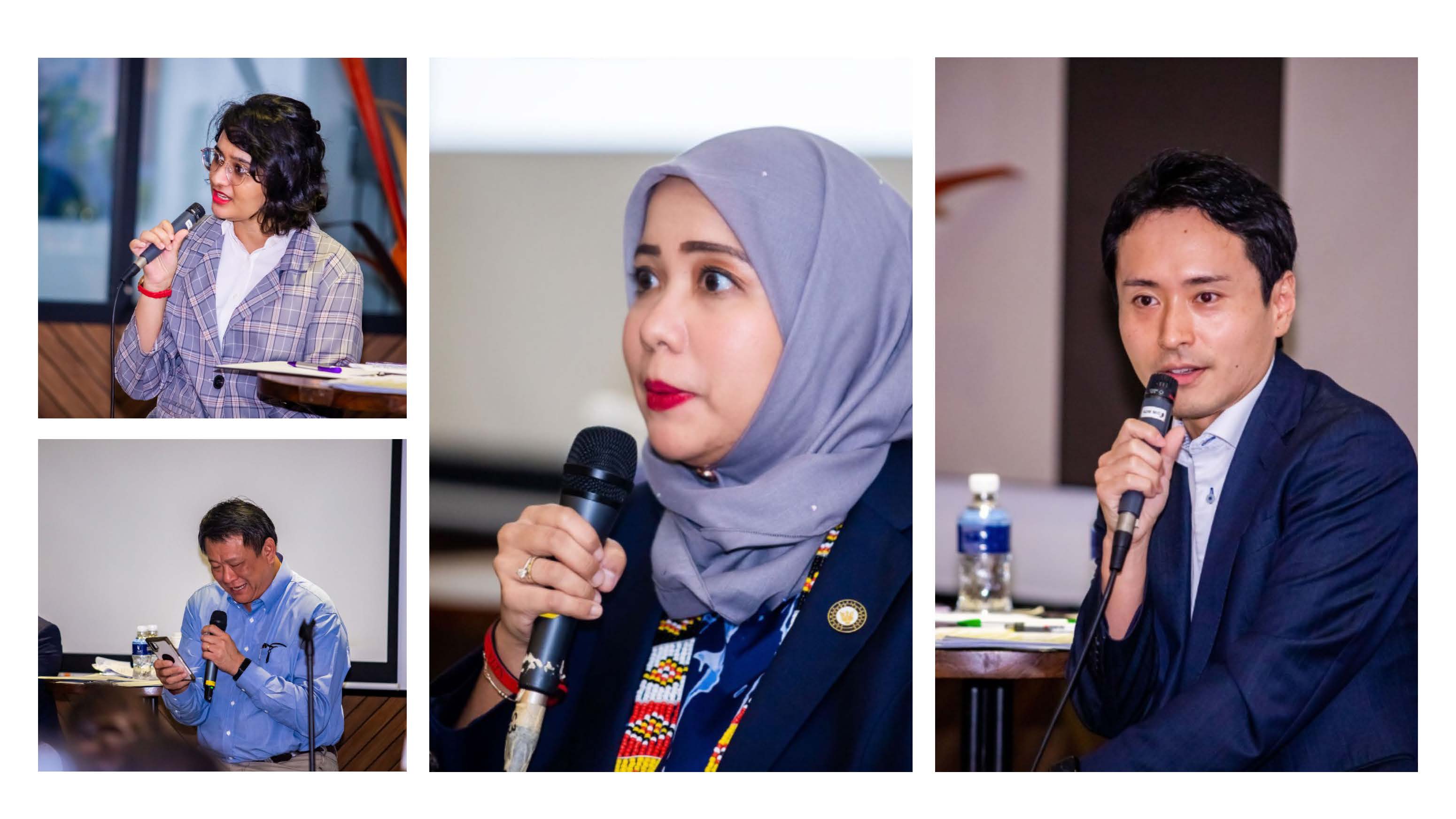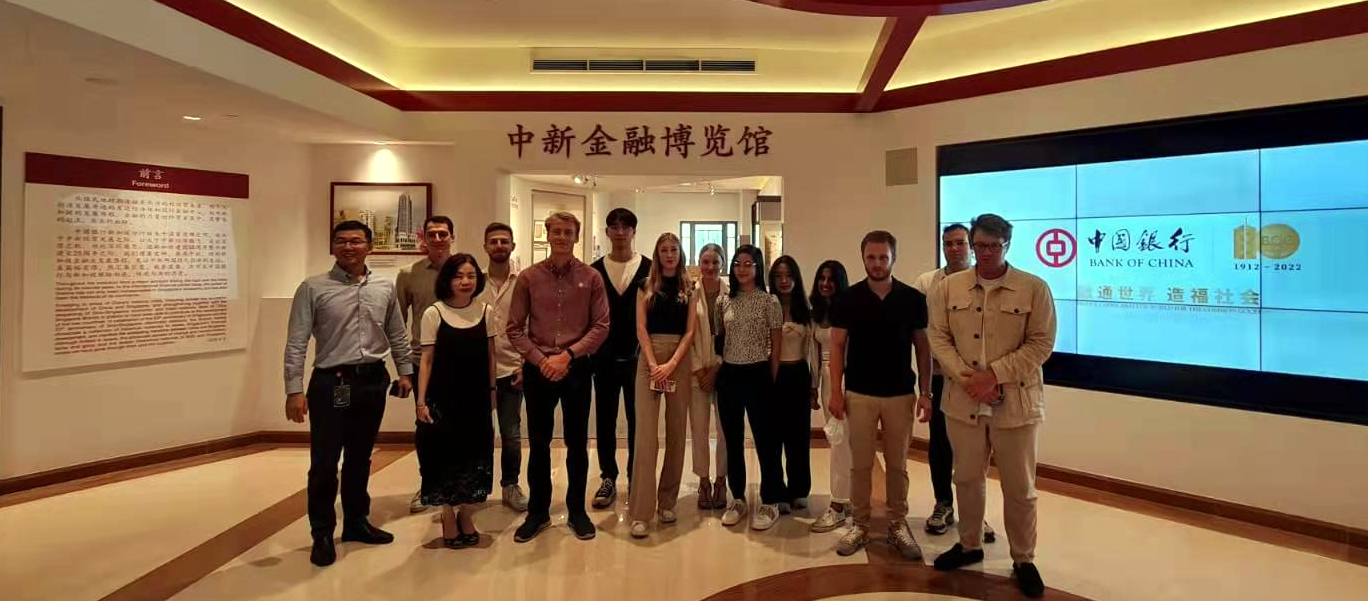
For the first time since the Covid-19 pandemic struck, international students from 31 countries convened in-person at the Singapore Management University (SMU) for the 2022 Global Summer Programme (GSP). Organised by SMU’s newly formed Centre for Global Education and Opportunities (GEO), the 7th edition of the GSP hosted a record high of 167 students from universities in 31 countries from 27 June to 22 July. GSP participants, who arrived in Singapore in adherence with global travel advisories, immersed themselves in a bespoke programme which delivered rich insights from industry leaders, learned scholars and diverse peers.
Besides international students, this year’s GSP participants comprised local SMU students fulfilling their Global Exposure requirement, as well as recipients of grants awarded by the Singapore Ministry of Foreign Affairs, Tanoto Foundation, and the Temasek Foundation (TF). The TF Leadership Enrichment and Regional Networking (LEaRN) Programme supported student leaders from the Universiti Brunei Darussalam and Malaysia’s Universiti Teknologi Petronas, with the goal of cultivating friendships and meaningful exchange amongst students from Singapore and ASEAN countries. In a warm welcome to all participants of GSP 2022, GEO kickstarted the programme with a rousing Orientation session that included in-person tours of the SMU campus and surrounding precincts.
Spanning a full month, GSP 2022 offered courses offering key perspectives and insights into Asia business and culture, delivered by SMU faculty members with deep expertise. To complement classroom learning, students were given plentiful opportunities to engage in dialogue with key leaders and to participate in field trips and industry visits. Enabled through SMU’s strong linkages and collaborations with industry, GSP students heard first-hand from the management teams of renowned corporate entities from the aviation, banking, consultancy, government, hospitality and technology sectors. Multinationals and homegrown companies that hosted GSP participants included Bank of China, Grand Hyatt Singapore, Japan National Tourism Organisation, Norges, Salesforce, Samsung Electronics Singapore Pte Ltd, Sentosa Development Corporation, Singapore Airlines, Sarawak and Tourism Office Singapore, Sustainable Singapore Gallery. GSP students engaged directly with corporate decision-makers to glean valuable insights into their business models and blueprint for operating successfully within the Asian region.
Assistant Professor of Strategic Management and Sustainability, School of Business, Simon Schillebeeckx, offered GSP participants a close examination of the future of sustainability. The interactive dialogue session saw Prof Schillebeeckx introducing the concept of a regenerative and inclusive process where any company, from e-commerce and advertising, to banking and transport and more, could create positive impact. The theme of the dialogue was organised in alignment with SMU’s strategic priority of “Sustainable Living”, where the University aimed to drive solutions in managing climate change and sustainable city living, enhancing quality of life.
A second dialogue, titled ‘Building Back Better Through Sustainable Tourism’, provided GSP participants the opportunity to hear from members of the Japan National Tourism Organisation, as well as the Sarawak and Tourism Office Singapore, about developments in the tourism sector. During the lively dialogue, the misconception of Japan being a ‘concrete jungle’ was addressed with an introduction to the natural wonders of Japan’s lesser-known prefectures. GSP participants learnt of practices in Japan to promote and certify standards for sustainable tourism. They were also given a glimpse of Sarawak’s post-pandemic development strategy, which aims to empower local communities to conserve heritage, culture and biodiversity through investment in responsible eco-tourism.
 According to GSP participants, one of the most important benefits reaped from the programme was the enduring friendships and global networks forged, as they worked, stayed with and socialised with their multicultural peers.
According to GSP participants, one of the most important benefits reaped from the programme was the enduring friendships and global networks forged, as they worked, stayed with and socialised with their multicultural peers.
"I'll always remember the GSP experience. It helped me to meet people, whom I now call friends, from all over the world,” commented Faisal Fayaz Ahmed from Boston University, U.S.A.
These sentiments were echoed by Juraj Simkovic from Vienna University of Economics and Business, Austria, who remarked: “Thanks to GSP, I developed a way to naturally communicate with people from other cultural backgrounds, which is an important skill to thrive in a globalised world."
SMU’s strategic city location was affirmed as a huge advantage. Said Nadya Marshanda from Universitas Gadjah Mada, Indonesia: “Studying in the heart of Singapore allowed me to explore and experience the robustness of this city-state.”
The GSP experience was aptly summed up by Irene Zhang from the University of British Columbia: “GSP combines unique courses, fun experiential activities, and opportunities to connect with diverse students to provide a unique learning experience in Singapore for the global citizen.”
“It’s certainly been a pleasure to welcome GSP participants in-person, introducing them to the vibrant buzz of our city campus, as well as the intellectual and cultural smorgasbord that makes up Singapore,” said Rick Tay, Head of SMU's Centre for Global Education & Opportunities. “In the months ahead, we will be working closely with our faculty colleagues and industry partners to curate an equally innovative and impactful experience for participants of the next programme edition.”
The SMU Global Summer Programme is now managed by the Centre for Global Education and Opportunities (previously International Office Programmes), as part of the University’s Academic Services and Operations group.
Registration for GSP 2023 will open in mid-January 2023. Please contact smusummer [at] smu.edu.sg if you have questions or feedback.
For updates on GSP 2023, subscribe to our newsletter here or click here to subscribe via our alternative platform if you reside in China.


